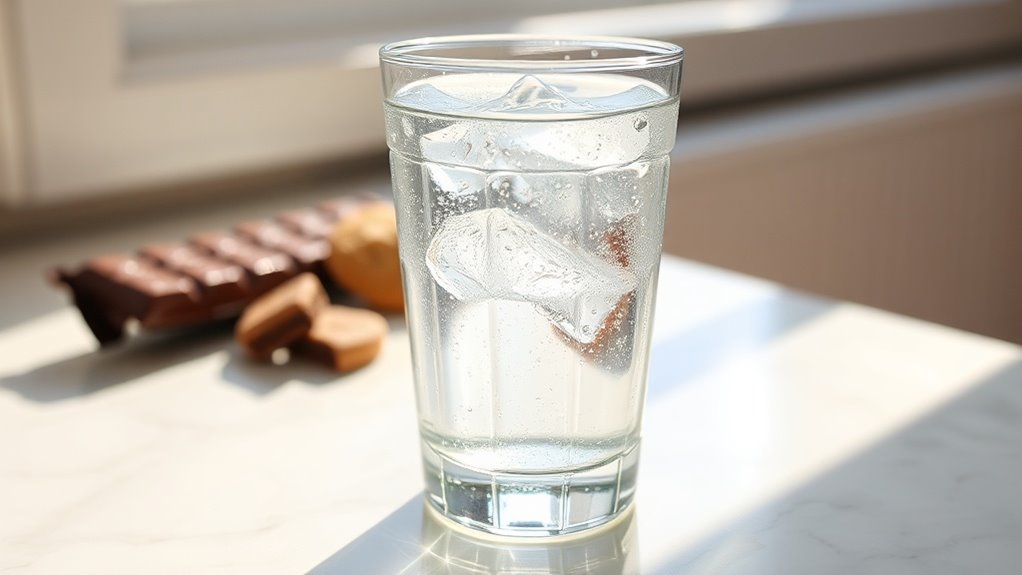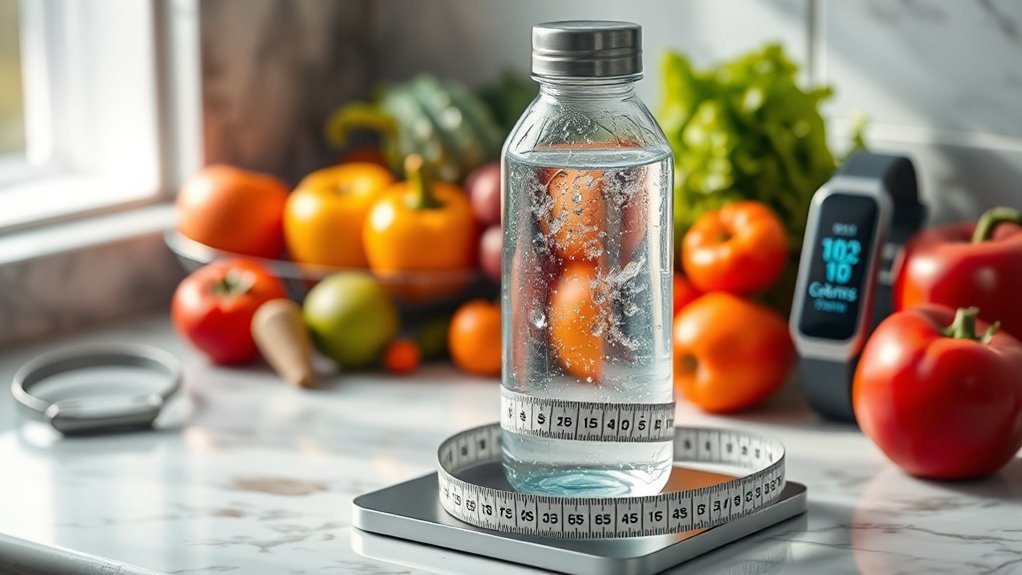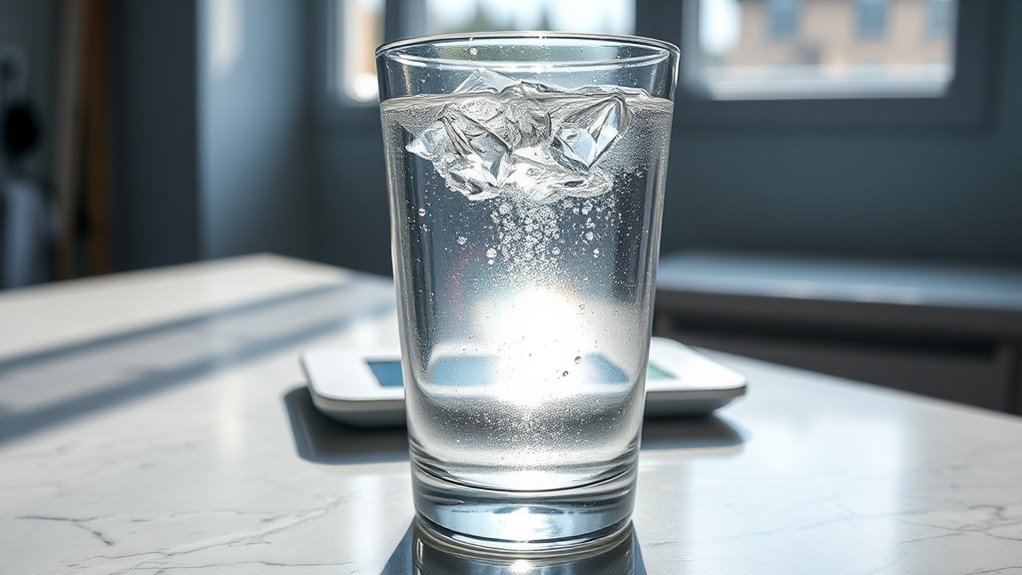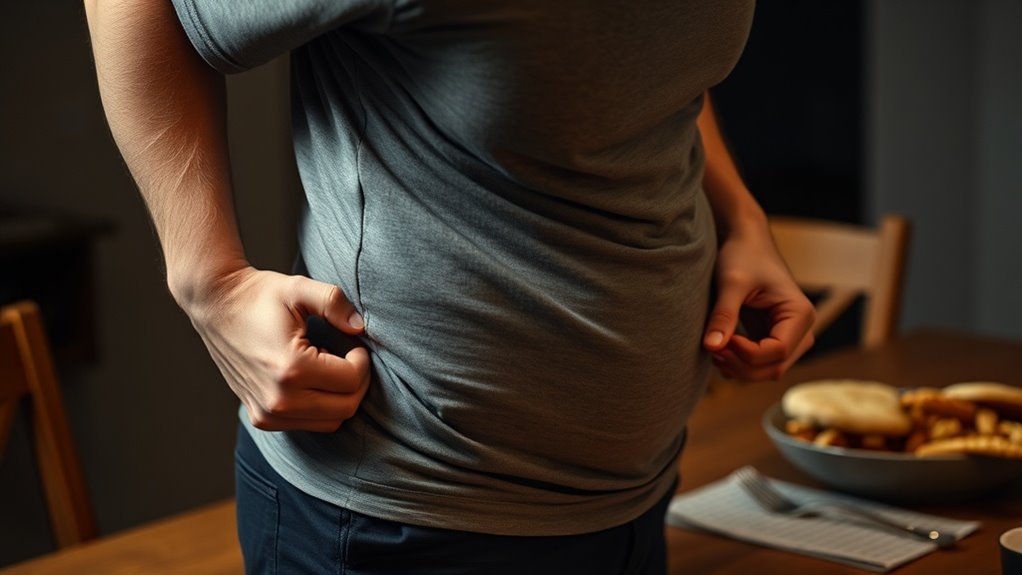How Staying Hydrated Curbs Cravings and Aids Weight Loss
You’ve likely experienced those moments when you think you’re hungry, but you’re actually thirsty. This common confusion occurs because your brain processes thirst and hunger signals through similar pathways. When you’re properly hydrated, you’ll notice a natural decrease in food cravings and better portion control during meals. Understanding the science behind hydration’s role in appetite regulation can transform your approach to weight management and help you achieve lasting results.
The Science Behind Water and Appetite Control
When you drink water before meals, it activates multiple physiological mechanisms that help regulate appetite and food intake.
The water fills your stomach, triggering stretch receptors that signal fullness to your brain. Proper hydration also helps distinguish between true hunger and cravings, as thirst signals can often be misinterpreted as hunger, leading to unnecessary eating. Additionally, increased water intake can lead to feeling fuller, further supporting your weight loss efforts.
Common Signs of Dehydration-Induced Hunger
Understanding how dehydration manifests as hunger can help you make better dietary choices. When you’re dehydrated, your body often sends signals that mimic hunger, leading to unnecessary calorie consumption.
Learning to recognize these distinct signs is vital for maintaining a healthy weight.
- Feeling tired and lethargic, especially in the afternoon, despite adequate sleep
- Craving sweet or salty foods without true stomach hunger
- Experiencing a dry, sticky mouth while thinking about food
Additionally, proper hydration plays a crucial role in distinguishing between true hunger and thirst, which can prevent unnecessary snacking.
Best Times to Drink Water for Weight Management
Strategic timing of water intake can greatly boost your weight management efforts.
You’ll optimize results by drinking 16 ounces of water 30 minutes before meals to reduce caloric intake.
Have water first thing in the morning to jumpstart metabolism, during exercise to maintain performance, and between meals when hunger strikes. Additionally, pre-meal water consumption can fill the stomach and curb appetite.
Avoid drinking large amounts right before bedtime.
Smart Hydration Strategies for Daily Life
Making hydration a natural part of your daily routine doesn’t have to be complicated.
Set yourself up for success by implementing proven hydration strategies that align with your lifestyle and schedule.
- Keep a reusable water bottle within arm’s reach and refill it at set intervals throughout the day.
- Track your intake using smartphone apps or smart bottles with hydration sensors.
- Pair water consumption with existing habits like meals, meetings, or bathroom breaks. Staying hydrated is crucial because it supports optimal metabolic function and allows the body to burn calories more efficiently.
Hydrating Foods That Support Weight Loss Goals
Food choices play an essential role in both hydration and weight management.
You’ll find natural water content exceeding 90% in cucumbers, celery, zucchini, and lettuce.
Watermelon, strawberries, and citrus fruits provide essential electrolytes while delivering minimal calories.
These water-rich foods increase satiety, support metabolic function, and help maintain ideal hydration levels during your weight loss journey. Additionally, incorporating high-fiber foods can enhance feelings of fullness and further support your weight loss efforts.





